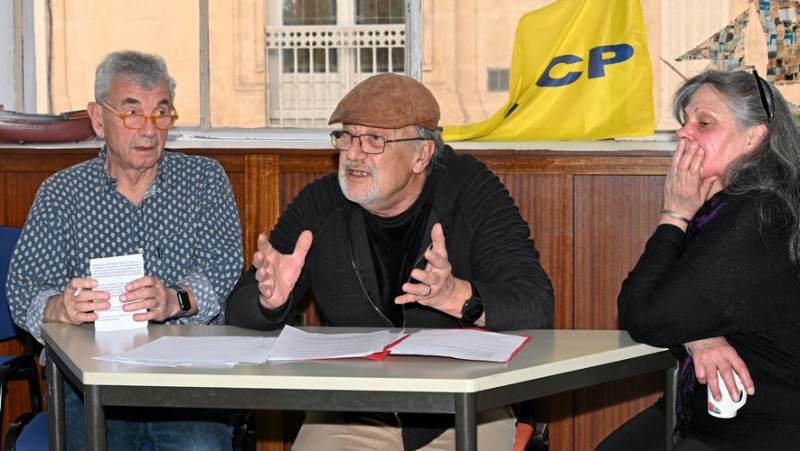“We are in the process of creating a criminal record for those deprived of employment” denounces the Maison des chômeurs de Montpellier

Jean-Marc Talamoni, au centre, entouré de Claude Piras et Michel Pianfetti. Midi Libre – JEAN-MICHEL MART
The House of Unemployed and Precarious Workers of Montpellier, which will celebrate its 30th anniversary, denounces the successive reforms of unemployment insurance and the prerogatives granted to France-Travail (formerly pole) considered as a unique tool of control and radiation.
"We noticed the weariness of the unemployed. We have difficulty motivating them and this weariness has been fueled by the various reforms". Every year, Jean-Marc Talamoni sees between 1,500 and 1,600 job seekers pass through the House of Unemployed and Precarious Workers that he chairs in Montpellier . And he is now deeply worried about the fate that the government is preparing to reserve for these unemployed people "presented only as fraudsters". "The establishment of France-Travail in place of Pôle-emploi induces a new relationship with the unemployed. It’is a tool to reduce their number through radiation" he asserts.
"The carrot and the stick"
In addition to the project to reduce the duration of compensation, the manager denounces "a huge file that France-Travail is building, a form of criminal records for those deprived of employment". "They want to have access to the files of people with RSA, to medical files but what happens to medical confidentiality"asks Claude Piras. This permanent representative of the association also questions the status of people receiving active solidarity income who will have to work for 15 to 20 hours per month. "We are going to force them to keep a logbook which will put those who do not have a smartphone in difficulty. Everything will work with carrots and sticks".
Faced with these orientations "which aim to unravel the entire French social system", the House of Unemployed nevertheless pleads for alternative solutions such as the "zero long-term unemployed territories" experienced for example in Lodève. The national movement of the unemployed and precarious has also initiated a vast reflection aimed at having "the right to employment" included in the Constitution . "Because it is indeed the deprivation of employment which has a cost for the community" insists Jean-Marc Talamoni.
I subscribe to read more




